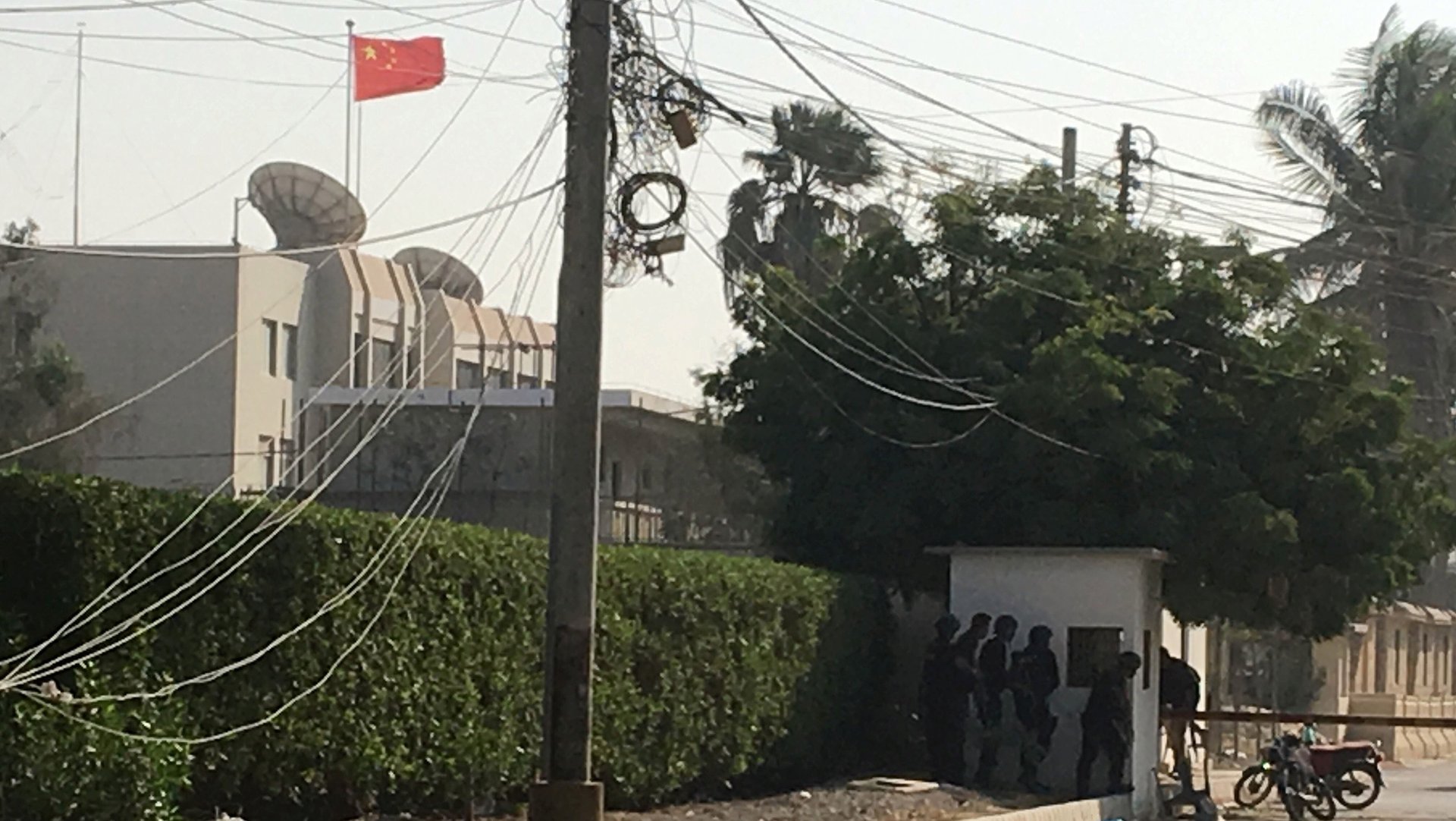Chinese nationals in Pakistan faced an attack once again
Armed gunmen stormed the Chinese consulate in the Pakistani city of Karachi shortly after it opened today (Nov. 23). The three attackers, at least one of whom was wearing a suicide vest, managed to enter the building, but were killed after an hour-long gun battle with paramilitary forces, the Associated Press reported.


Armed gunmen stormed the Chinese consulate in the Pakistani city of Karachi shortly after it opened today (Nov. 23). The three attackers, at least one of whom was wearing a suicide vest, managed to enter the building, but were killed after an hour-long gun battle with paramilitary forces, the Associated Press reported.
Two civilians—a father and son who had come to pick up visas—and two police officers were killed in the attack. A separatist group in Pakistan’s southwestern province of Baluchistan claimed responsibility for the attack and also released photos of the attackers, the AP report said. No diplomats were harmed, police said.
The attack on the consulate, which deals with the Sindh and Baluchistan provinces, and is located in the city’s affluent Clifton neighborhood, comes after several other acts of aggression against Chinese nationals in Pakistan over the past year. The country is home to thousands of Chinese as a result of Beijing’s $60 billion investment into the China-Pakistan Economic Corridor, a flagship project of its Belt-and-Road global infrastructure plan. As part of the corridor, China is developing an Arabian Sea port in the Baluchistan city of Gwadar and a highway connecting the port all the way to China’s restive western Xinjiang region, home to ethnic Uyghurs.
Last December, China’s foreign ministry warned of possible attacks on its nationals in Pakistan, a few months after unidentified men threw a grenade into a dormitory housing Chinese workers on the port project, injuring more than two dozen. In February, the Chinese manager in Pakistan for state-owned Cosco Shipping Lines was shot dead in Karachi while in his car. In August, a convoy that included Chinese engineers was the target of a suicide attack in Baluchistan, injuring three. Video footage of Chinese engineers brawling with Pakistani cops also went viral this year.
It’s unclear whether the recent attacks are linked to China’s development plans or are driven by other motives. China’s policy of detaining Uyghurs in “re-education” centers in order to combat extremism has caused unhappiness in Muslim-majority Pakistan. Men married to Uyhgur women—there’s a tradition of intermarriage across the Pakistan-Xinjiang border—have lobbied for Pakistani government help (paywall) with China over wives who’ve gone missing.
Pakistan’s prime minister Imran Khan said he believes the incident is linked to the economic corridor and vowed to bring those behind it to justice, according to state television channel PTV.
Update, Nov. 23: This post was updated with the Pakistan prime minister’s statement.